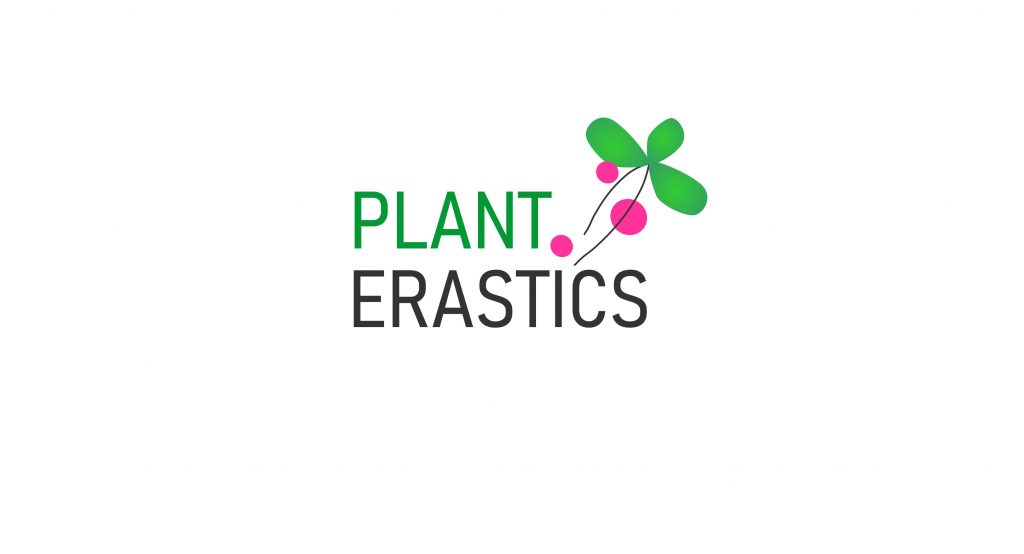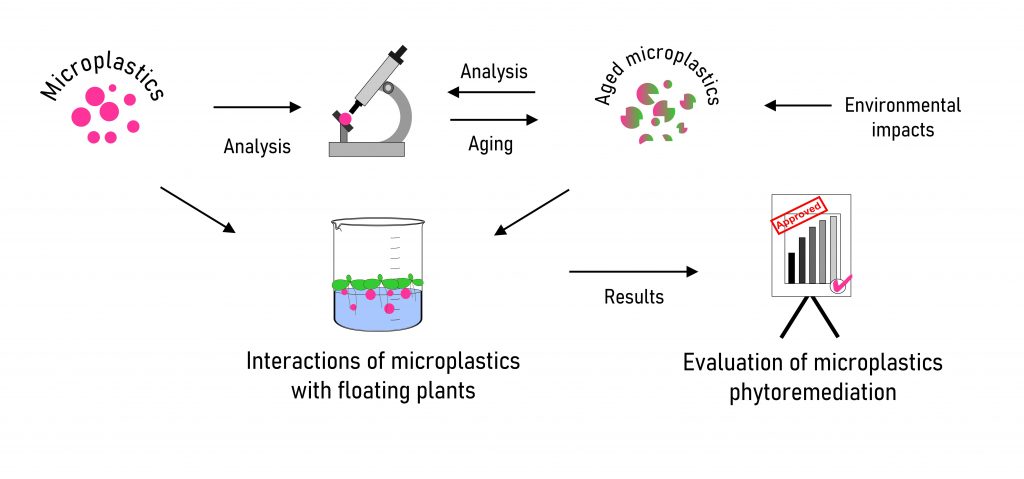
PLANTERASTICS is our first project that gave a name also to the group of researchers that are dealing with microplastic research at the Faculty of Chemistry and Chemical Technology.
The aim of the project is to assess interactions of various microplastics (MPs) and aquatic plants in order to evaluate whether floating plants can accumulate and strongly bind MPs and could potentially be used for phytoremediation of microplastics from freshwater ecosystems.
Within the framework of the project, we will prepare various microplastics (fibers, films, particles) and expose them to natural conditions to observe the development of biofilm and to assess the changes of microplastics properties. This will advance the common knowledge about microplastics fate in the aquatic environment

In the second part of the project, we will use various microplastics prepared during the first part of the project and expose floating duckweed. First of all, we will investigate the impact of microplastics on the plant’s roots and leaves to evaluate if microplastics can significantly affect long-term growth and development of duckweed. Further, we will determine how many microplastics can be retained by plant roots and leaves. Microscopic observation will help us to reveal reasons for microscopic binding on roots/leaves.
This systematic assessment of the microplastics-plant interactions will be crucial for the understanding and further development of the first and sustainable phytoremediation strategy for the removal of the microplastics.
Duration of the project: 1.10.2019 – 30.9.2021